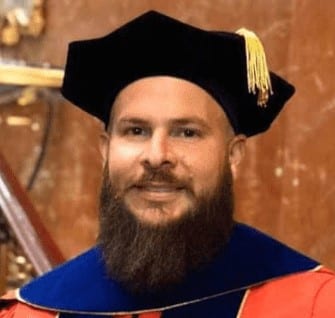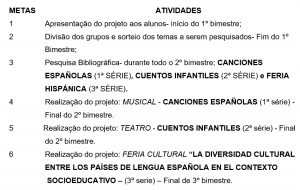ORIGINAL ARTICLE
MALDONADO, Gabriel Orlando Quiñones [1]
MALDONADO, Gabriel Orlando Quiñones. Discourse analysis: ”Other flus killed more than that”. Multidisciplinary Core scientific journal of knowledge. Year 05, Ed. 08, Vol. 02, pp. 44-51. August 2020. ISSN: 2448-0959, Access Link: https://www.nucleodoconhecimento.com.br/lyrics/discourse-analysis, DOI: 10.32749/nucleodoconhecimento.com.br/lyrics/discourse-analysis
SUMMARY
This article is based on the area of Interactional Sociolinguistics and results from the analysis of excerpts from an interactive oral discourse published in Correio Braziliense Política. The oral corpus constituted by the verbal interaction presented by the President of Brazil was used as reference. The discourses used by politicians are messages spread to an immediate and easily accessible public, including an interactional society. Politicians convey their messages to the people with the capacity of their discourse to be understood or, on the contrary, can generate doubt or confusion in their followers. This article aimed to analyze the discursive acts in the presidential message at the beginning of the Coronavirus pandemic in March 2020. In this initiative, the results revealed the pragmatic interpretation that had this discourse.
Keywords: Interactional Sociolinguistics, oral discourse, political discourse, COVID-19.
1. INTRODUCTION
One of the objectives of Interactional Sociolinguistics is to study the discursive acts that manifest themselves in the daily life of the different social components. Oral discourse is deduced by a type of communicative activity by two or more participants who influence each other in an exchange of verbal and nonverbal actions and reactions in narrative demonstrations. The interactional use of language manifests itself from social relationships or through the sharing of ideas in an everyday conversation, in a work meeting, in a class, in greetings or farewells. All situations that are located are interactions.
Interactional Sociolinguistics (Is) is an approach to discourse analysis that has its origin in the search for replicable methods of qualitative analysis that explain our ability to interpret what participants intend to convey in daily communicative practice. It is well known that conversationadores always rely on the knowledge that, in addition to grammar and lexicon, is heard. But how this knowledge affects understanding is not yet sufficiently understood. (GUMPERZ, 2005, p. 309).
The conversation, due to its complexity and, above all, due to its communicative meaning, is probably the central issue of the theme, especially with regard to the pragmatic paradigm as the most appropriate place for human interaction. The conversation is not just the sum of two communication skills or an oral-listening comprehension and oral expression. It is a complex process that is regulated by intricate processes that occur in social situations between partners who maintain social relationships with each other in order to exchange information about everything.
2. THEORETICAL FOUNDATION
In this generation, we see, every day, that nonverbal communication systems are constantly used in our oral discourse. We believe that in a foreign language classroom it is important and necessary for the integration of this type of nonverbal communication, because it helps students to develop their thinking and acquire vocabulary without having to resort to a translation in their mother tongue. When we communicate with people, only a fraction of the information we get from people comes from verbal communication. Most discourses are made through body language; of the expression; of the gaze; posture; of the signals. According to Kerbrat-Orecchioni (1980, p. 25):
For example: to analyze the discourse of a linguistics teacher, it is necessary to take into account: (1) the particular nature of the announcer (where several parameters come into play); the nature of allocutaries (number, age, “level”; behavior); the material, political and social organization of the space in which the didactic relationship is installed, etc.; (2) the fact that it is a discourse that obeys the following restrictions: didactic discourse (gender restriction) that refers to language (thematic restriction).
In the act of conversation, the announcer and interlocutor are cognitively involved, constantly trying to understand if the turn of the interaction will end. In this sense, the intentions of the interlocutor’s speech and how it can influence the direction of dialogue between them are crucial aspects. Conversational sequences have certain characteristics, particularly with regard to the extension of two shifts.
In some conversation exchanges, an adjacency pair rule may be violated. We could simply dismiss such exchanges as “non-grammatical” conversations, not “real” conversations, and there is no adequate data. To do this would be to lose the notion that the exchange not only makes sense, but makes the kind of sense that makes exactly because the rule was violated. The rule is not (necessarily) something to be obeyed, but something to take into account, something that participants (to use Goffman’s [1972: 185] phrase) “are alive”. In linguistics, rules govern language as an ideal object. To the extent that an utterance does not follow the rules, it is not a language. The rules of the CA adjacencies pair do not govern; on the contrary, they are objects of orientation (BILMES, 1988, p. 46).
The principle of cooperation studied by Grice[2] is a principle that deals with linguistic behavior, whose conversational exchanges are conditioned not only by the linguistic productions of the speakers, but also by the relations between the interlocutors. The principle of cooperation, in turn, is a general principle that is in other principles of behaviour, the so-called maximum conversational: maximum quantity (inform what is necessary); maximum quality (do not say what you believe to be false); relevance (relevant in relation to the purpose of the conversation) and the maximum mode (whether ordered, clear and brief). Such concepts, centered on language as a social activity, show the insufficiency of the linguistic code by itself and, moreover, the issue of violation of these principles often translates into irony and sarcasm.
3. ANALYSIS OF THE SPEECH OF THE PRESIDENT OF BRAZIL
In this chapter, the discursive strategies tangent to the political discourse of the President of Brazil, Jair Bolsonaro, will be compared. This initiative arose due to the need for pragmatic interpretation that could have one of his most recent discourses. The discourses used by politicians are messages spread to an immediate and easily accessible public, both in a local context and in international society. According to Kerbrat-Orecchioni (1980, p. 31):
Transitivity is that if an X emitter transmits Information I to a Y receiver, Y has the possibility to transmit I to Z, in turn, without having experienced the validity of itself. This fundamental property allows human language (unlike, for example, bees) to function as the privileged instrument of knowledge transmission.
Over the centuries, political discourses have been seen as a position of power. Politicians attend the use of the circumvention treaty to respond veracityily. This process is also called evasive response, which stimulates the communication of the different forms of interpretation of the receptors. These strategies include persuasion, language adaptability, relevance, and the use of ilocution acts. One of the theories of the ilocution acts developed by Searle (1990) is the Act of Promise. The strategy of persuasion will be the most significant for the similarity of the discourse processes of politicians. The theory of pertinence is fulfilled in the discourse of politicians to the extent that they hide and add information that resolves the discursive relevance to cause the desired effect on the receiver, which would achieve personal benefit. According to Searle (1989, p. 9):
I will now try to make an analysis of the ilocution act of promising. To do this, I will ask what conditions are necessary and sufficient for the act of promising to have been carried out in the statement of a given sentence. I will try to answer this question by declaring these conditions as a set of propositions so that the conjunction of the members of the assembly involves the proposition that a speaker made a promise, and the proposition that the speaker made a promise implies that conjunction. Thus, each condition will be a necessary condition for the performance of the act of promising, and collectively, the set of conditions will be a sufficient condition for the act to have been performed.
Politicians mainly use the discursive strategy of persuasion, to a lesser or greater degree. In political discourses, one perceives more when one communicates the negative situations that afflict the country. In this analysis, we will evaluate eight excerpts from President Bolsonaro’s speech.
Excerpt #1: The newspaper wrote an article entitled: “Bolsonaro’s speech follows the same line of The American leader Donald Trump, to mitigate the impact of the disease.” When we read this line and leave our thoughts without going any further, we can classify it as simple information. But given the circumstances we are facing around the world, it is important that we use our critical thinking to carefully analyze the messages that actually convey to our politicians, in speech whether oral or written. According to the types of speech acts of John Searle, we have in this speech an act of representative speech that are used to “commit a speaker to the truth of an express proposition”[3].
Excerpt #2: The newspaper wrote that President Jair Bolsonaro said, on the afternoon of Wednesday (11/3), at the entrance of the Alvorada Palace that “other flus killed more” than coronavirus. We live in a time when people who decide to be political leaders have a responsibility to convey their message always thinking, not only of people who know words and terms, but should also think of people who were born and developed into a social class who do not have easy access to education, media, health plans, etc. The goal of giving confidence through voting is nothing other than having leaders who are able to have effective communication and easy understanding for their people. According to john searle’s types of speech, we have in this speech an act of directive speech that “are used by a speaker who tries to convince the recipient to perform an action. “[4] Also, we have the violation of the maximum quality of Grice, because the contribution is not true without statistical data and can have several interpretations by the different receivers.
Excerpt #3: “I’m going to call Mandetta now. What I think, I’m not a doctor, I’m not an infectologist, what I’ve seen so far, other flus have killed more than that,” he said. The sensitivity of political leaders is essential for a healthy and reliable communication process. The people are clear that the political leaders who represent them will not be experts in all matters that cover the direction and administration of a country, but also expect those officials to have the capacity and intelligence to convey through their message; calmness, prudence and protection.
Here we can see one of Fonseca’s counterposition axes (1992, p. 318), in which the President of Brazil persuaded in this quote from his speech: “to the opposition between anational dimensions (directly or indirectly carried out), namely praise, criticism/censorship, persuasion, deternity”.
Excerpt #4: “During the past year, obviously, we have a moment, a crisis, a small crisis. In my opinion, much more fantasy, the issue of coronavirus, which is not all that the great media propala or propagates all over the world”. Assigning knowledge to problems that you previously stated you were unaware of is also a sign of a lack of capacity that a leader can have and that, through his power, misinforms and creates distorted communication.
According to Duarte (2005, p. 292): “the understanding of what is implied beyond what is said requires that the allocutário make inferences. The assumption is equivalent to an inference on the basis of what is also said.”
Excerpt #5: Bolsonaro had already said that the news about the disease was “oversized.” “There is the issue of coronavirus too, which, in my opinion, is being oversized, the destructive power of this virus. Maybe it’s being leveraged by economic issues,” he said, without specifying. When we use communication as a social channel without analyzing data, without studying previous references and deviating from the real meaning of information, we run the risk of creating doubts, uncertainties and collective chaos that can have serious consequences on the recipient’s mind.
According to Kerbrat-Orecchioni (1980, p.33): “finally, it is necessary to admit for each message the existence of additional and random receivers, the nature of which the sender cannot predict or, consequently, the interpretation they will give to the message produced”. Such effects of meaning continue to be constant in the next excerpts to be highlighted, concerning the speech of the President of Brazil, Jair Bolsonaro.
Excerpt #6 the newspaper asked the president: still on Wednesday, asked if the coronavirus crisis should affect the number of protesters in the act of March 15, he replied: “I did not call anyone, ask who called. You ask who you called.” The use of sarcasm in communication can make us a bad move when we want to gain the trust of others. The word play does not offer us a strong and clear message; on the contrary, the word play is the promoter of new questions that seek to clarify the doubts that still persist. President Bolsonaro in his speech is violating grice’s conversational maxim, because it did not satisfie the maximum of the relationship. He was neither relevant nor relevant in his response.
Excerpt #7: The statement also brings a speech said by President Jair Bolsonaro at a conference in Miami. “The demonstrations on March 15 are not against Congress or against the judiciary. They are in favor of Brazil.” The constant deviation of responsibility used in the speaker’s way of expressing can be clearly seen in these expressions of the President of Brazil.
According to Duarte (2005, p. 293): “assumptions and other implicit are discursive strategies used by the speaker to, indirectly and subretially, impose certain ideas or opinions”. He also points out that: “politicians do have an enormous skill (or necessity…) of saying-not saying or not-saying – which, in the case, comes to give the same” (idem).
Excerpt #8: On the last day 7, in Boa Vista, Bolsonaro returned to speak of the demonstrations, this time, calling the population to attend. “Day 15 now has a spontaneous street movement. It is a spontaneous movement and the politician who is afraid of street movements is not used to be political. So take part. It’s not a movement against Congress, against the judiciary. It is a pro-Brazil movement, it is a movement that wants to show to all of us, president, executive power, legislative power, judiciary that who gives the north to Brazil is the population”.
The use of rhetoric in communication processes, specifically those used by politicians, rather than conveying a clear and accessible message, is a tool that fosters confusion to maintain public bias. As Gumperz (2015) points out, the analysis focuses on conversational inference, which can be defined as an interpretative process from which those who interact evaluate what is intended as communication: “[…] at any point in the exchange and in which they rely to plan and produce their answers. … To evaluate what is intended, listeners must go beyond the superficial meaning to fill in what has not been said” (GUMPERZ, 2015, p. 313).
FINAL CONSIDERATIONS
With the current situation of the Covid-19, we see confusing messages in all television media. Reporters ask their following questions to all leaders, presidents, heads of agencies and important people in each country. The answers of many of these interlocutors, in the case of people in power, are convincing and, for the most part, respond with doubts and without direct relation to what was requested. In these days of international emergency, we can all constantly see the interruption in the taking of the speaker’s shift to the interlocutor or vice versa, in addition to avoiding giving the correct answers to reporters. This can be interpreted in different ways by us receivers. Many may think that leaders do not have the relevant tools to respond, that they lack the vocabulary or relevant information to be transmitted to their people.
Moreover, it should also be emphasized that this type of message and attitude, at the correct moment of the process understood as “talk-in-interaction” with the receivers (in this case, the international people), could inform us that the situation is more complicated than it seems, just because of this confusing interaction, slow or contradictory responses. Such situations cause communication to become more noisy, without convincing and logical answers. The president of Brazil, in this speech, violates all the maxims of Grice. The maximum amount, because the contribution of the president was not as informative as that required; the maximum quality, because the contribution presents many uncertainties; the maximum relationship, because the discourse is not relevant; and the maximum of so, because it presents a lot of ambiguity in his speech and the Covid-19 is a real and serious situation.
REFERENCES
BILMES, J. Category and rule in conversation analysis. IPRA papers in pragmatics, v. 2, n. 1-2, p. 25-59, 1988.
DUARTE, I. M. Falar claro a mentir. Estudos em homenagem ao Professor Doutor Mário Vilela. 2005. Disponível em: https://repositorio-aberto.up.pt/bitstream/10216/7890/2/73321.pdf. Acesso em: 03 ago. 2020.
ELLO. Pragmatics. 2020. Disponível em: http://www.ello.uos.de/field.php/Pragmatics/PragmaticsTypesofSpeechActs. Acesso em: 03 ago. 2020.
FONSECA, J. Linguística e texto/discurso: teoria, descrição, aplicação. Lisboa: Ministério da Educação, 1992.
GRICE, H. P. Logic and conversation. In: Speech acts, 1975.
GUMPERZ, J. Sociolinguistique interactionnelle. Une approche interprétative. Paris: L’Harmattan, 1989.
KAFRUNI, S. ”Outras gripes mataram mais do que essa”, diz Bolsonaro sobre coronavírus. 2020. Disponível em: https://www.correiobraziliense.com.br/app/noticia/politica/2020/03/11/interna_politica,833611/outras-gripes-mataram-mais-do-que-essa-diz-bolsonaro-sobre-corona.shtml. Acesso em: 03 ago. 2020.
KERBRAT-ORECCHIONI, C. L’énonciation. De la subjectivité dans le langage. Paris: Armand Colin, 1980.
SEARLE, J. R. O que é um acto linguístico? In: LIMA, J. P. de (Org.). Linguagem e acção: da filosofia analítica à linguística pragmática. Lisboa: Apáginastantas, 1989, p. 61-85.
APPENDIX – FOOTNOTE REFERENCES
2. GRICE, H. P. Logic and conversation 1975.
3. Taxonomy of John Searle’s illocutionary acts
4. Taxonomy of John Searle’s illocutionary acts
[1] Post-doctor in Education with research in Brazilian Musical Sociolinguistics from the Virtual University of Higher Studies – UNIVES in Mexico (2020); PhD in Portuguese Language Teaching from Bircham International University in Madrid Spain (2018); Master in Languages, Cultures and Societies in Multilingual Environments – French Foreign Language by the “Université des Antilles” in Martinique (M1-2016 / M2-2018); Postgraduate (Specialization) in Portuguese Language Studies: Research and Teaching by the Open University of Portugal (2014): Graduated in Modern Languages, qualification in Portuguese and French, from the Universidad de Puerto Rico – Río Pedras Enclosure (2009).
Sent: July, 2020.
Approved: August, 2020.





